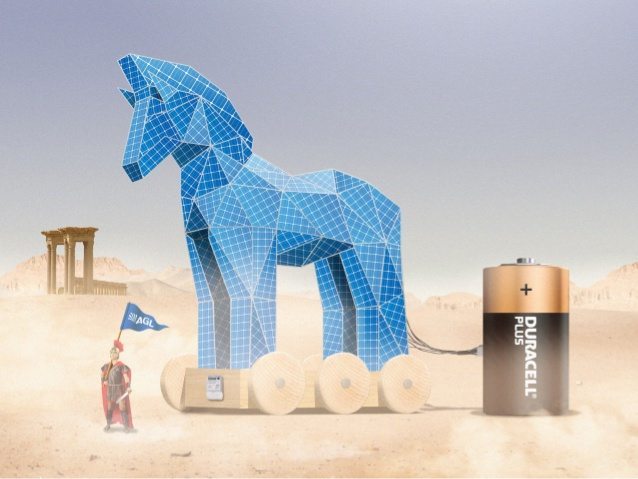
Ben Burge understands the attraction of solar PV. The CEO of upstart online electricity retailer PowerShop is well aware of the booming uptake of rooftop solar by Australian households and businesses, and the potential for battery storage to follow suit.
But he has his own views on why this shift is happening. And his own concerns about how it will play out. The role of the incumbents, he says, is a critical piece of the jigsaw.

“The hatred of power companies, both networks and retailers, is so palpable,” Burge told RenewEconomy’s Disruption and the Energy Industry conference on Tuesday – an audience populated by senior executives from said networks and retailers. “There is a deep satisfaction the customer will get by shifting the power base.”
It is the attempt to tap into the same desire of customers to take the power back, quite literally, that has underpinned Powershop’s business model, and its success in Australia since it was launched by New Zealand renewables group Meridian Energy in February this year.
Powershop’s open communication, mostly via an easy to use App which allows customers to buy electricity from their mobile phones according to which deals or sources appeal most, has won over energy consumers who wish to have more control over their bills and usage.

Burge insists it’s not a particularly new or “disruptive” approach, but just a response to what increasingly frustrated and distrustful customers want, and do not get, from established power companies – otherwise described by Burge as Australia’s “energy cartel” (a title he uses “just for convenience”, he says).
“It’s ‘here’s how much you’re using while you’re using it’, nothing ground-breaking about that.”
The broader plan, he says, is to help customers save money, while “driving an undercurrent of unconscious conservation.”
It is this same desire – to save money, and stick it to the incumbents – that is driving people to shift to solar, and to consider batteries even before they are economically viable, says Burge, but he has some serious concerns about how the solar revolution will play out.
For decades, says Burge, the incumbent energy companies have been using hidden fees, confusing tariffs, loyalty penalties and other such strategies to “enslave” the customer, by keeping them at arms length from information.
Now that the gentailers are finally accepting that solar is a thing, Burge is worried PV panels and batteries will become the “need breed of horse for the thoroughbred sport of ripping off the customer.”
“I’m worried about the sales machine that will see people run the risk of buying the wrong product at the wrong time for the wrong reasons,” he says, and for “anaemic financial returns.”
So how does the consumer avoid falling into this trap?
“It’s very easy,” Burge says. “Just take their money. Switch to another company… and on the way out, let the cartel know why you’re leaving.
“This sector’s been riddled with lies and deception for so long. … The customer doesn’t know the good from the bad, and shouldn’t have to care.
“Go to Facebook, check the page of an energy company, see what the customers are saying. If they don’t have a Facebook page, that’s probably a red flag.”
“Our objective is not to drive fear into the customer, but to drive fear into the competitor,” he said.
“The average 20-something has no prior experience. Their customer expectations are being driven by their experience on Facebook.
“It’s all about instantaneous, personalised, real-time customer service, software, backed up with a human service.
This is scary for the incumbents, he says, because all the customer interactions they have traditionally conducted behind closed doors, are now going to be broadcast in real time.

Sophie is editor of One Step Off The Grid and deputy editor of its sister site, Renew Economy. Sophie has been writing about clean energy for more than a decade.


